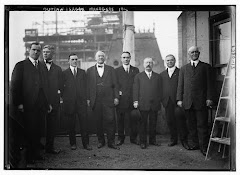Rating: 3.125 Pierogies
Review: My friend, Sandy, and I listened to Malcolm Gladwell's "Outliers" on CD on our long drive to and from Philly. In Outliers, Gladwell examines incredibly successful people, and explores what, beyond innate talent, has led them to be so incredibly successful. We're not talking about "has a good job and is making a good salary" successful, Gladwell is more concerned with the Bill Gates and The Beatles level of success.

The premise of Outliers boils down to: Incredible success is made up of (1) talent, (2) hard work, and (3) access to the right kind of opportunities to lead to that success. Bill Gates as a child, for example, had a passion for programming, but also access to a computer which was highly unusual for a schoolkid in 1968, and was also exploring programming at a time where there was still a lot of that territory to be explored and developed.
 I enjoyed Gladwell's deconstruction of the path to success for Gates, the Beatles, Mozart, and others. His theories are all straightforward and make sense. Of course you can have all the innate talent to be a prodigy oboe player, but if you have no access to an oboe, and therefore can't put in oboe practice time, obviously your future as an oboe prodigy will never come to fruition.
I enjoyed Gladwell's deconstruction of the path to success for Gates, the Beatles, Mozart, and others. His theories are all straightforward and make sense. Of course you can have all the innate talent to be a prodigy oboe player, but if you have no access to an oboe, and therefore can't put in oboe practice time, obviously your future as an oboe prodigy will never come to fruition. Gladwell's weaknesses in Outliers are that he overwhelmingly relies on anecdata. Aside from short the discussion of some statistics related to the month of birth of Canadian hockey players, the rest of his book is case studies. I don't know how Gladwell's theories could be objectively tested, but I felt like Gladwell should have had more numbers and figures, or at least broader support. Gladwell also relies too heavily on absolutes. In a section exploring how cultural backgrounds fashion our actions (which honestly felt a little out of place in the context of the book's purpose) Gladwell repeatedly insists "we must take cultural influences into account", and essentially insists that extreme success cannot exist outside his formula. The New York Times speared Gladwell for these weaknesses, but I probably would have been satisfied if he just used "should" instead of "must" more.
Gladwell's weaknesses in Outliers are that he overwhelmingly relies on anecdata. Aside from short the discussion of some statistics related to the month of birth of Canadian hockey players, the rest of his book is case studies. I don't know how Gladwell's theories could be objectively tested, but I felt like Gladwell should have had more numbers and figures, or at least broader support. Gladwell also relies too heavily on absolutes. In a section exploring how cultural backgrounds fashion our actions (which honestly felt a little out of place in the context of the book's purpose) Gladwell repeatedly insists "we must take cultural influences into account", and essentially insists that extreme success cannot exist outside his formula. The New York Times speared Gladwell for these weaknesses, but I probably would have been satisfied if he just used "should" instead of "must" more.On one hand, Outliers was incredibly depressing to me. It made me feel helpless in my own success (or lack thereof), by making success so heavily reliant on access to unique opportunities. On the other hand, it made me feel more secure in not being a prodigy in something or another. My lack of Bill Gates level success isn't for lack of effort or intelligence, but for lack of those lucky opportunities.
Gladwell is an engaging storyteller, and did an excellent job of bringing his case studies to life. He also has a nice, soothing voice which made his reading of this book on CD very enjoyable. I recommend this book as a good poolside nonfiction, but it will leave you wanting more if you are seeking hard academic writing.
